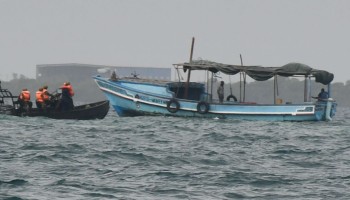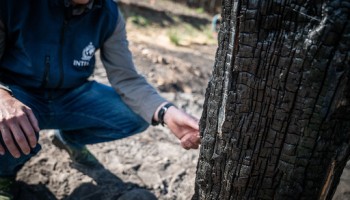The operation involved law enforcement authorities from 23 countries who worked together on targeting criminals and organizations trafficking wildlife protected under the Convention on International Trade in Endangered Species of Wild Fauna and Flora (CITES) from Africa to Asia.
Prior to the operation, police from different countries identified INTERPOL-wanted fugitives who were allegedly involved in trafficking ivory, rhino horn, pangolin and tiger parts, while traveling frequently between Africa, Asia, the U.S. and France.
The data helped the authorities to locate and study the smuggling routes in a tactical phase from August to September last year.
The operation led to the seizures of 1,202 ivory pieces weighing more than four tonnes, 78 pangolin scales weighing 423 kilos, 50 rhino horns weighing 72 kilos, 46 kilos of totoaba (fish) bladders, almost 4,000 mollusks weighing 52 kilos, 42 shark teeth, 33 red corals, and 1336 other CITES protected species, as well as live specimens including three turtles and tortoises and more than 120 birds.
In addition, police identified around 100 suspects across the participating countries, including Botswana, Cambodia, Cameroon, Central African Republic, the Democratic Republic of the Congo, China (including Hong Kong), Gabon, Indonesia, Kenya, Laos, Madagascar, Malawi, Malaysia, Nepal, Nigeria, Philippines, Singapore, South Africa, Tanzania, Thailand, Uganda, Vietnam, and Zimbabwe.
The operation triggered worldwide arrests and further prosecutions are anticipated.
Ilana de Wild, INTERPOL’s Director of Organized and Emerging Crime, said, “The world’s fourth largest illegal trade - wildlife and forestry crime – goes hand in hand with tax evasion, corruption, money laundering and even murder, with organized crime groups using the same routes to smuggle protected wildlife as they do people, weapons, drugs and other illegal products.”
“Strong, coordinated responses such as Operation Golden Strike are needed to address the activities of transnational organized crime groups involved in wildlife crime and to disrupt illegal trade chains across range, transit and destination states,” she said.






